Behold, Your King is Coming - Zechariah 9:9-10
Today is Palm Sunday, which is the Sunday where we remember and reflect upon Jesus’ Triumphal Entry.
All four of the gospels record King Jesus riding on a donkey into Jerusalem as he prepared to save his people from their sins on the cross.
And two gospels in particular, Matthew and John, quote Zechariah chapter 9, which hopefully explains why we’re looking at this passage this morning.

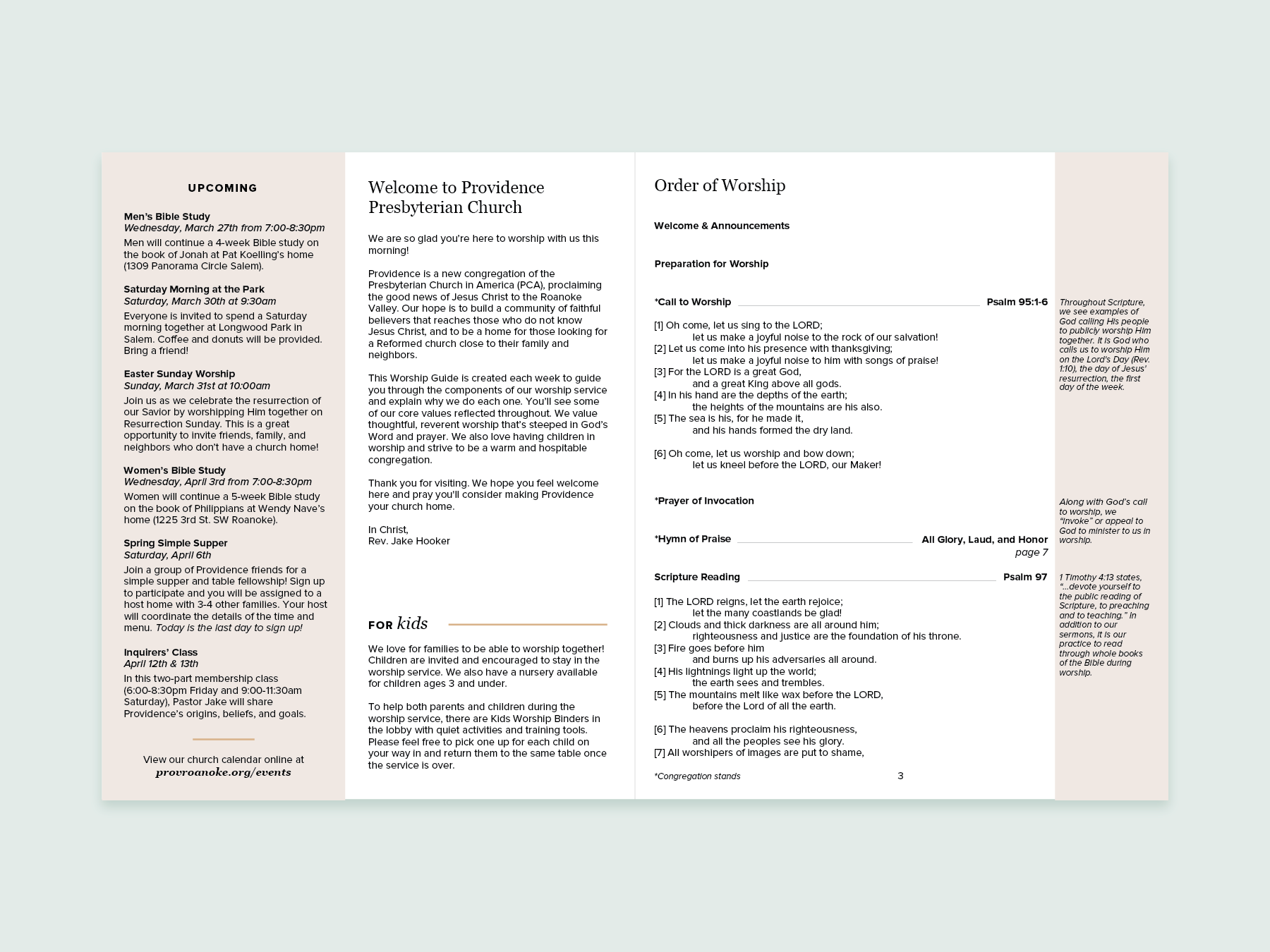
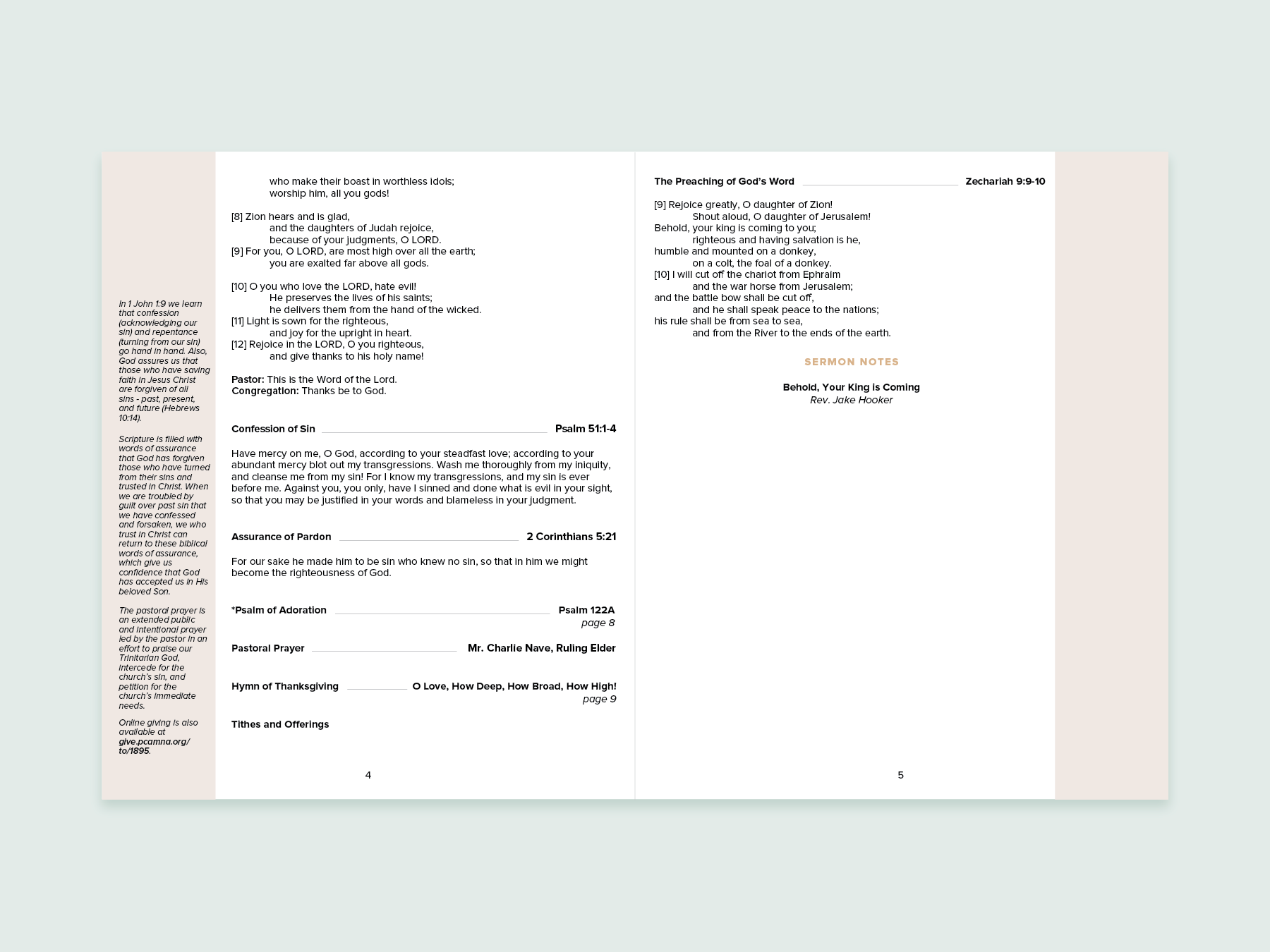
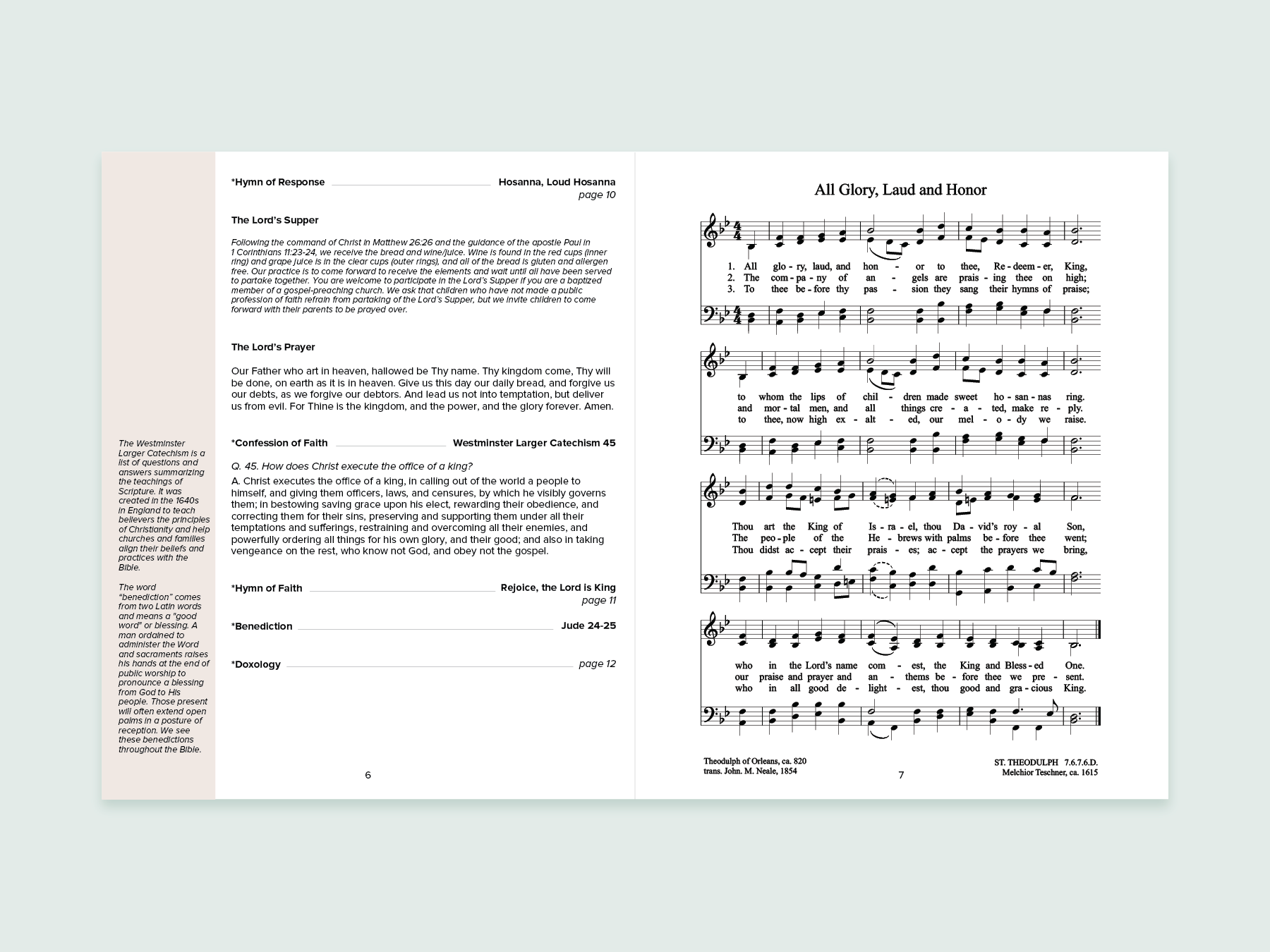
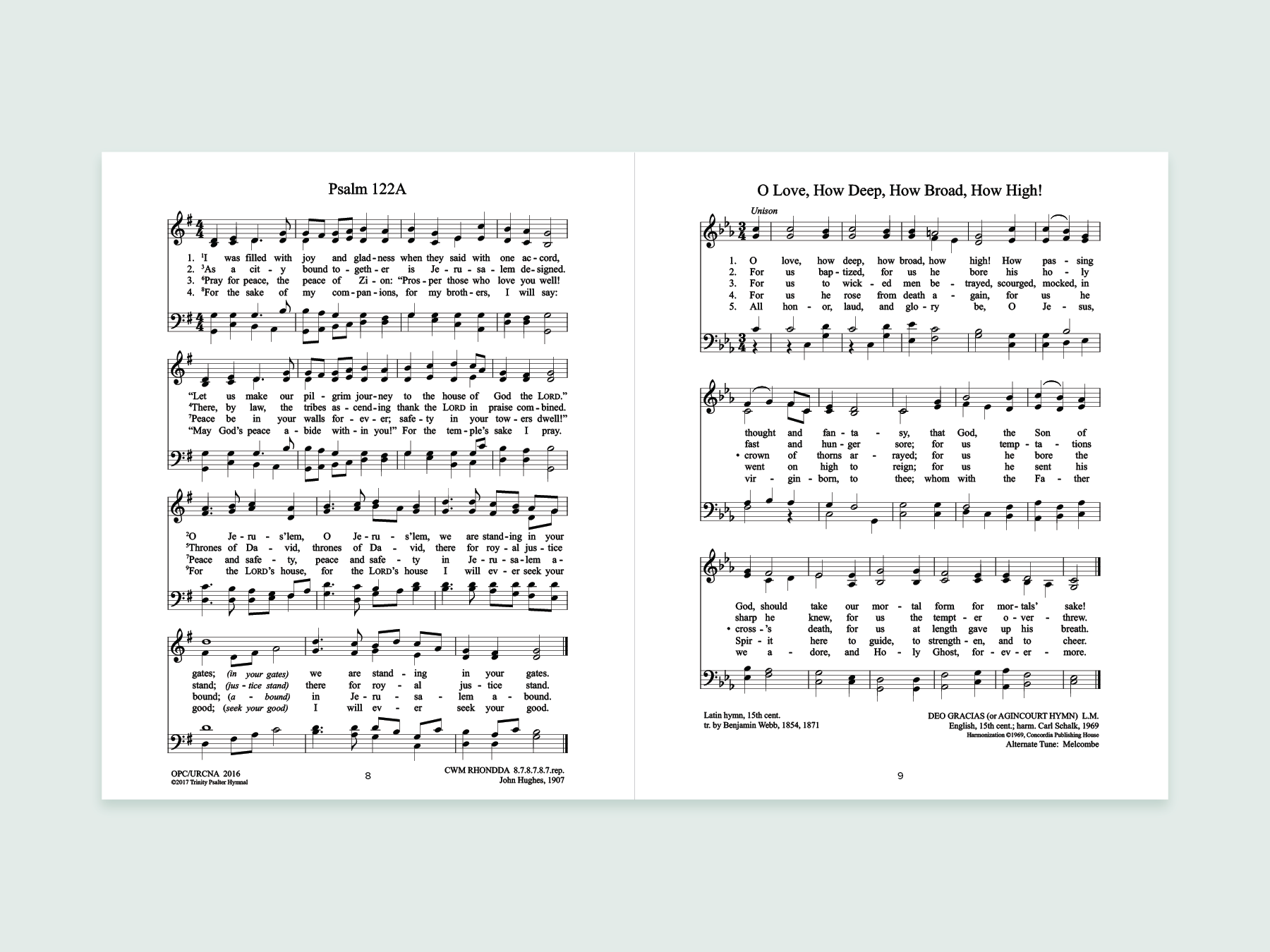
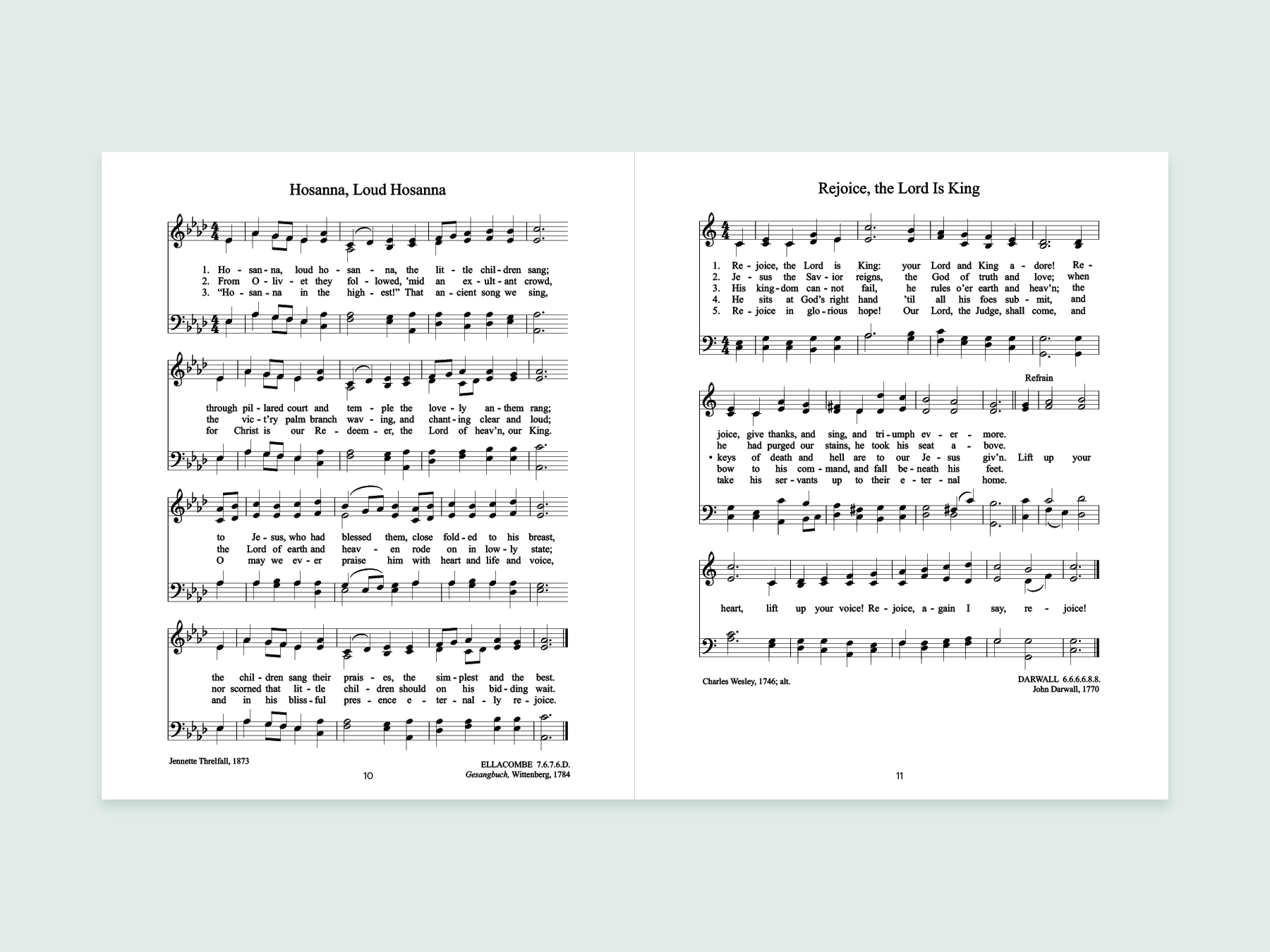
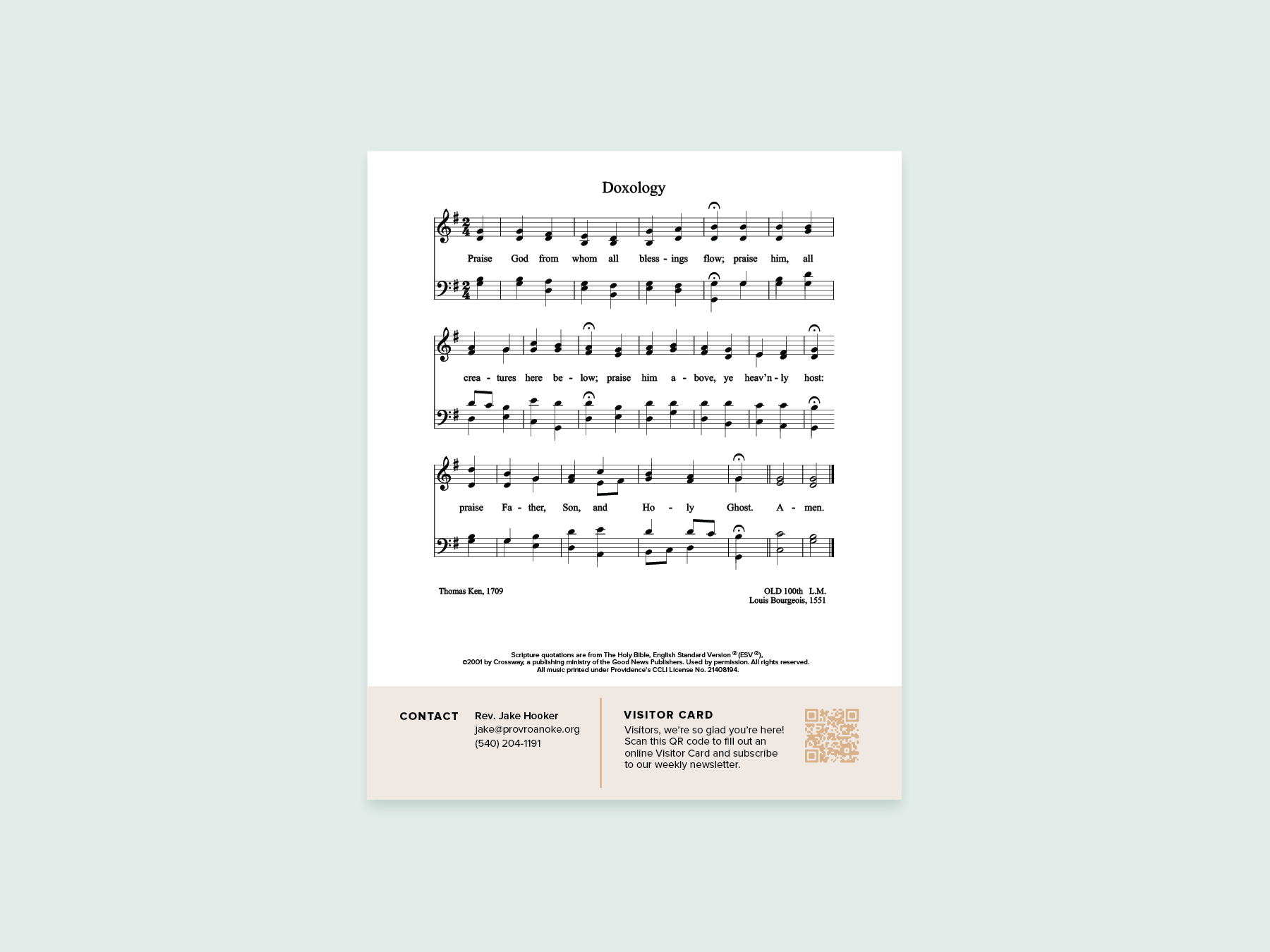
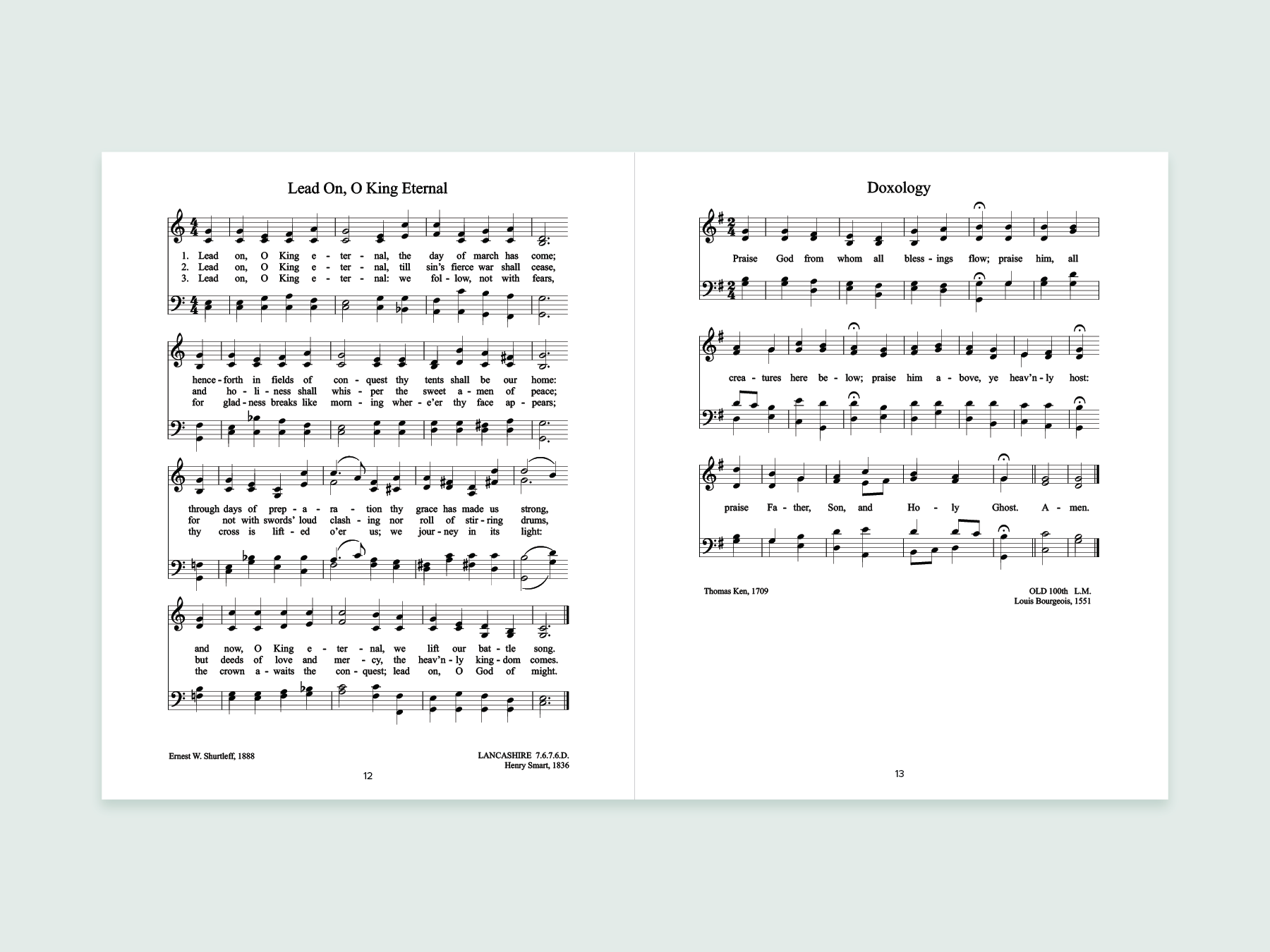
Because as Jesus rode the donkey into Jerusalem he wasn’t doing it because it made him feel good, rather, he did it to fulfill Scripture.
Jesus was and still is a King, which is why as he rode into Jerusalem and people laid down their cloaks and cut palm branches and cried out, ““Hosanna to the Son of David! Blessed is he who comes in the name of the Lord! Hosanna in the highest!”
And of course, the Triumphal Entry was the fulfillment of Zechariah’s prophecy.
Jesus is the King, but what we’ll see as we work our way through this passage is that Jesus’ Kingship and Kingdom was not established by the tip of the sword, but rather through the humility of the cross.
But these two verses from Zechariah 9:9-10 break down into three parts: the King promised, the King’s arrival, and the King's reign.
The King Promised
Throughout time, I think it’s safe to say that everyone has always longed for better days. I don’t think anyone has ever looked around and said, everything is perfect just the way it is.
Typically when we long for better days we long for someone to fix it! We look around and say who’s going to restore order around here? Isn’t that what we expect every election cycle? If only this person is elected then everything will dramatically change. But what often happens is that we’re perpetually disappointed.
Well the same was certainly true for the Jewish people. They longed for better days. They longed for a great Messianic King. A king who would put them back on top.
A King who would rule in the exact manner in which Zechariah described in verse 9: with righteousness and salvation.
And of course, they generally understood that in a political sense. They wanted a King who would rule and govern justly. They wanted a King who would protect them, grant them victory over their enemies and establish peace. They wanted a King who would bring about real reform.
It’s what we all want isn’t it? A political leader that’s actually going to do all the things he says he’s going to do. Those leaders seem to be in short supply.
But that was especially true for the Jewish people, because they weren’t just looking for an adequate King, they wanted a perfect King.
And of course, it makes sense why they would want this perfect King when you consider the Jewish people’s circumstances when Zechariah was active.
He was a prophet during the post-exilic years.
Remember what happened, the Babylonians had exiled the people of the southern Kingdom. They had been taken to Babylon, and part of Jeremiah’s prophecy was that that exile would last seventy years.
But after seventy years, they’d be permitted to return to Jerusalem. Eventually they were permitted to return to Jerusalem and were thrilled to return to their homeland. Nehemiah was working on the wall and Ezra was there, and Haggai was encouraging the people to rebuild the Temple. All of these great things were happening, but as time dragged on and the Temple had still not been rebuilt their enthusiasm began to wane. Everyone became discouraged and depressed.
And you can see why: everywhere they look was a reminder of Israel’s greatness and strength and here they are essentially starting all over under the thumb of a foreign nation. Would their people ever return to the strength they once had?
And it was in the midst of these circumstances that Zechariah was active and his prophecies were meant to encourage the people. Because the first half of Zechariah 9 were oracles of judgment on their enemy nations. And the second half of chapter 9 tells of a humble, glorious, Messianic King.
Hopefully you can see the significance of a prophetic word like that - essentially, Zechariah was saying that God’s people will one day be back on top, there would be a great King, but he would be different from all the other Kings.
The King’s Arrival (v. 9)
Look at verse 9 with me:
“Rejoice greatly, O daughter of Zion! Shout aloud, O daughter of Jerusalem! Behold, your king is coming to you; righteous and having salvation is he, humble and mounted on a donkey, on a colt, the foal of a donkey.”
Zechariah is reminding the people that there will be a glorious Messianic King and when he arrives, it will be a great day of rejoicing! It will truly be worth celebrating!
Because this King is going to be distinguished in two particular ways: he’s going to be righteous and he’s going to have salvation. At first you may read that and think that Zechariah is simply saying that this promised King is going to be a just, fair, protector of his people.
Wouldn’t we all be excited if someone said, “thus says the Lord, the next President of the United States is going to be righteous and he’s going to defeat all our enemies!” We’d all look at each other and say, that sounds great!
But Zechariah is saying something that goes much deeper than politics: the Messianic King is going to be morally righteous and he’s going to possess salvation.
We all know and understand that to be a reference to Jesus Christ, but when you read and examine it, you quickly realize that it has to be Jesus Christ because no one else fits the criteria!
David and Solomon did a lot of good things, but they come nowhere close to fitting these criteria! They weren’t exactly morally righteous!
Only Jesus was morally righteous. Not only was Jesus born sinless (because he was conceived by the Holy Spirit), but he lived a perfect life. He subjected himself to the law and perfectly kept it in every way.
Theologians will often refer to the active and passive obedience of Christ. Christ’s active obedience was His perfect keeping of the law of God throughout His life. His passive obedience was His willing reception of the punishment of sinners' breaking the law.
His passive obedience was accepting the punishment for our sins! Jesus was perfectly morally righteous.
It’s also interesting isn’t it that Zechariah describes the Messianic King as “having salvation” or “possessing salvation.” Zechariah doesn’t describe him as giving or granting salvation. That’s why it’s translated as, “have salvation.” This great King will himself be their salvation.
After all, why was Jesus riding into Jerusalem? To go to the cross and accomplish salvation. He had to do it. It had to come through him and we contribute nothing to it!
As the late R.C. Sproul used to say, “the only thing we contributed to our salvation is the sin that made it necessary!”
Zechariah can only be speaking of Jesus! Because not only was Jesus morally righteous and possessed salvation in himself, but he did it all through humble means to bring us peace.
Which is interesting because our personal lives and the world around us don’t exactly seem peaceful. In fact, our personal lives and the world around us seem to be a perpetual source of conflict, chaos, and confusion.
But that is one of the tell tale signs of a great King or ruler - they bring peace and stability.
Teddy Roosevelt was a big proponent of demonstrating military strength in order to maintain peace. And of course, Roosevelt loved the Navy. Ironically, he served with a volunteer unit of the Army in the Spanish-American War with the Rough Riders, but he always had a passion for the Navy.
Because before the Spanish-American War, Roosevelt spent some time as the Assistant Secretary of the Navy, and he also wrote a great historical book called, The Naval War of 1812.
Both American and British historians said it was the greatest book ever written on the subject at the time. That’s pretty specific isn’t it? When you know that, it makes a little more sense why he sent the Great White Fleet around the world to demonstrate American Naval strength.
And it sheds even more light on his most famous quote, “Speak softly and carry a big stick.”
It’s a great quote because it captures so well the sentiment of so many Kings, rulers, heads of state for so long. National stability and peace comes through strength.
But how does Zechariah describe the long awaited Messianic King?
Well, he’s going to be “humble and mounted on a donkey, on a colt, the foal of a donkey.”
Interestingly enough, the Rough Riders were a volunteer cavalry unit, but when they got to Cuba they didn’t have their horses. So they were forced to march on foot. But one man rode a horse that day and you can probably guess who: Colonel Teddy Roosevelt.
He wasn’t going to be on foot like everyone else, after all, he was the leader. Teddy Roosevelt would have done everything in his power to talk Jesus out of riding a donkey colt! He would have encouraged Jesus to make a strong powerful statement! You need to ride a majestic war-horse into Jerusalem, not a little donkey.
I can’t help but think of that great cinema classic, “Shrek.” There’s one scene where Princess Fiona referred to Donkey as a “noble steed.” And Donkey turns to Shrek and says, “did you hear that Shrek? She just called me a noble steed.”
Of course that joke is funny because a donkey is not a noble steed! A donkey isn’t exactly the animal that suggests strength, power, and authority. A donkey is a beast of burden.
People would typically only ride donkeys when they were forced to, but Kings definitely should not have to ride on a donkey!
A King is supposed to ride a beautiful white horse, with a perfectly manicured mane, and the King is supposed to be wearing a glorious golden crown and a huge sword on his waist.
That’s the image that we all have in our head, isn’t it? Or at least something along those lines, right?
The donkey colt that Jesus would have rode into Jerusalem would have been so short he probably would have had to lift his legs up so his feet wouldn’t drag on the ground. It’s not exactly a cool picture. It’s definitely not the picture of a glorious, conquering King entering the city to save his people that we all have in mind.
But one of the more interesting Biblical facts is throughout the Old Testament, leaders and kings of Israel would ride donkeys.
In 1 Kings Solomon rode David’s mule in order to show that he was the rightful successor to the throne. Various Judges rode donkeys and David mentions his riding donkeys in 2 Samuel 16.
It might sound odd to us today, but for the people of Israel at that time, it wasn’t all that unusual.
You have this intentionally odd juxtaposition. A person of great power and influence riding on, let’s be honest, a lame animal. But of course, that was the point!
The reason kings and leaders in Israel would ride a donkey as opposed to a war horse was to stress their humility. Zechariah says that in verse 9 doesn’t he?
“Behold, your king is coming to you; righteous and having salvation is he, humble and mounted on a donkey, on a colt, the foal of a donkey.”
The reason they would ride donkeys was to stress their humility and point to who was really in charge. Kings and rulers in Israel were always supposed to serve the Lord. And it was the Lord who would fight for them.
Kings were supposed to recognize that they didn’t win victories, the Lord would win the victories for them.
In Exodus 14, “The LORD will fight for you, and you have only to be silent.” I like the way the NIV translates Exodus 14 better, “The LORD will fight for you; you need only to be still.”
You see, riding a donkey was supposed to be a picture of their trust and dependence upon the Lord - they may be a King, but the Lord would be their strength.
The King Reigns (v. 10)
Doesn’t this shed so much light on Jesus’ Triumphal Entry? Because when Jesus rode into Jerusalem it wasn’t someone who was going to save his people on God’s behalf.
God himself was going to save his people.
King Jesus, the God-man, the second person of the Trinity, humbly rode into Jerusalem on a donkey, where he would die on the cross in order to grant you and me victory over sin and death.
What an incredible image? “Hosanna to the Son of David! Blessed is he who comes in the name of the Lord! Hosanna in the highest!”
And it’s with all of that humming in the background that verse 10 suddenly comes to life!
“I will cut off the chariot from Ephraim and the war horse from Jerusalem; and the battle bow shall be cut off, and he shall speak peace to the nations; his rule shall be from sea to sea, and from the River to the ends of the earth.”
There’s no use for the chariot in battle. Go ahead and leave that war horse in the stable. Hang up that bow - you’re not going to need it. In other words, the King will rule and bring peace apart from war.
And guess what? The kingdom will still expand: “...his rule shall be from sea to sea, and from the River to the ends of the earth.”
But the kingdom will expand by the tip of the sword. It’s not going to expand through war.
How does Zechariah say it will expand? “...he shall speak peace to the nations.” King Jesus’ message of peace is what will expand the kingdom!
It reminds me of what the Apostle Paul said in Colossians 1:19-20,
“For in him all the fullness of God was pleased to dwell, 20 and through him to reconcile to himself all things, whether on earth or in heaven, making peace by the blood of his cross.”
The message of peace is the glorious gospel message, and that gospel message is the vehicle for Kingdom expansion! Christ’s kingdom expands by saving sinners.
The Triumphal Entry of Jesus Christ wasn’t an occasion marked by pomp and circumstance, no, it was an occasion marked by humility and peace.
Because Jesus went to Jerusalem to defeat our greatest enemy: our sin. And it’s when we put our faith and trust in him, we have peace with God.
That’s the peace that Jesus gives you and me. That’s the peace that he speaks to the nations, isn’t it?
There’s no use for the chariot in battle. Go ahead and leave that war horse in the stable. Hang up that bow - you’re not going to need it.
Because Jesus has already won the victory, hasn’t he?
Both the Westminster Larger and Shorter Catechisms make it a point to talk about how Jesus fulfills the office of a King. We’re going to read the Larger Catechism in a moment, but listen to what the Shorter Catechism says:
How does Christ execute the office of a king?
Christ executes the office of a king, in subduing us to Himself, in ruling and defending us, and in restraining and conquering all His and our enemies.
The salvation that Jesus brings isn’t political is it? It’s far greater than that isn’t it? He graciously laid down his life to save you from your sin.
But you would be making a tremendous error if you mistake his humility for weakness. If you see him riding a donkey as a sign of his frailty, then you have really missed the point.
The message that Zechariah brought and that the Jewish people needed to receive is that it was far less about what the Messianic King was going to do for them, because what was more important was what he was going to do in them.
All the things that the Jewish people longed for in a King, a King who would protect them from enemies, they wanted comfort and peace - you see all of those things come in and through Jesus Christ.
You see, Jesus ushered his kingdom into the world in humility. We’re reminded of it every year at the Triumphal Entry, we’re reminded of it at Christmas too. God took on flesh and dwelt among us.
It’s what Paul says in Philippians 2, “And being found in human form, he humbled himself by becoming obedient to the point of death, even death on a cross.”
That’s the King we serve. He doesn’t rule by the tip of the sword, but by the word of his power.
I read a book a few years ago about Martin Luther, and apparently right before he rediscovered the glorious doctrine of justification by faith alone, the fact that we’re saved by grace through faith in Christ - he kept noticing a connection. And the Biblical connection that he kept seeing was a connection between being made right with God and humbling oneself before him.
To me, there seems to be a hair’s breadth separation between humbling yourself before the Lord and repenting trusting in the Lord.
And here’s why I bring this up: The way you and I enter into Christ’s Kingdom is similar to the way in which he established it: We have to humble ourselves before him. We must submit our lives to him. We must turn everything over to him.
And it’s not something that you do one time and then forget about it. No, we're continually humbling ourselves before him, turning from our sin and acknowledging that he is our only hope.
Martin Luther understood that point, which is why his first of his 95 Theses was: "When our Lord and Master Jesus Christ said, 'Repent,' he willed the entire life of believers to be one of repentance."
Let’s pray together.
